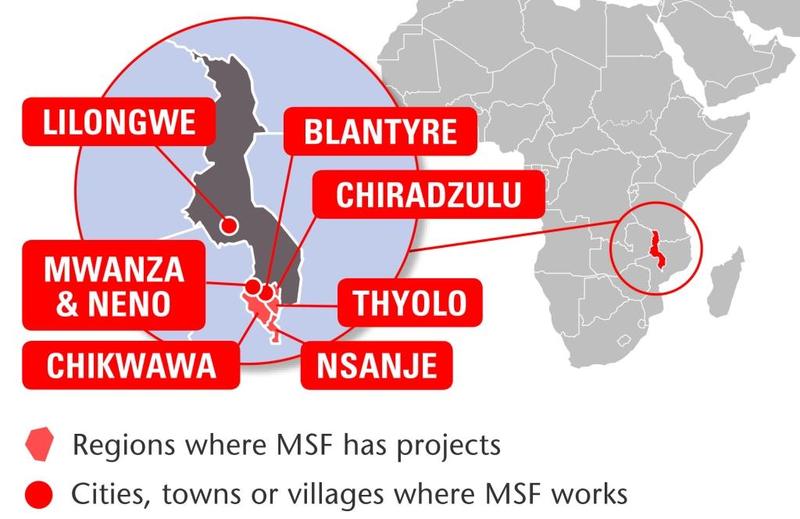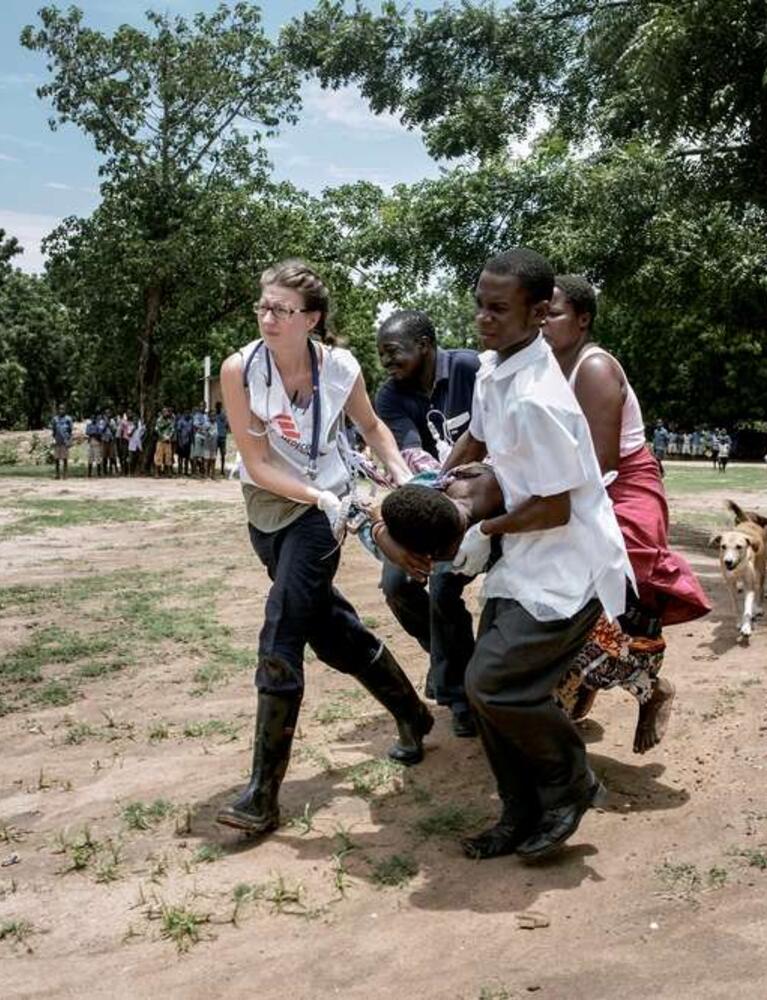Malawi is making great strides in overcoming decades of underdevelopment and the growing impact of HIV/AIDS.

Since 2007 the landlocked southeast African country made real progress in achieving economic growth due to programmes instituted by the government of President Bingu wa Mutharika in 2005.
But, a major limitation to healthcare provision is the shortage of skilled healthcare workers – the vacancy rate for clinical staff is around 60 percent in a country of nearly 18 million people.
Médecins Sans Frontières/Doctors Without Borders (MSF) has worked in the country since 1986 and provides a wide range of medical care, from HIV and tuberculosis (TB) treatment to maternal health and natural disaster response.
[[Country-Facts]]
MSF’s work in Malawi: 2015
Malawi experienced the most severe floods in living memory in 2015; 176 people were killed and over 200,000 were displaced. MSF responded with a five-month emergency operation in the south of the country.
Flood response
MSF mobile clinics provided 40,000 outpatient consultations, distributed relief items such as water treatment kits or mosquito nets to over 13,000 households and a total of three million litres of drinking water.
[[Article-CTA]]
The latter intervention helped contain a cholera epidemic that had flared up in neighbouring Mozambique and spread to Malawi: 279 cases were recorded in MSF-supported facilities in Nsanje and Chikhwawa.
HIV care
Despite significant progress in prevention in recent years, an estimated one million people are still living with HIV in Malawi and only half of them receive treatment.
In Chiradzulu, we supported more than 33,000 HIV patients, of which 18,800 are enrolled in the so-called ‘six month appointment’ schedule, whereby stable patients attend a consultation only twice a year.
In December, we finished handing over the HIV project we had been running for 18 years in Thyolo, to the Ministry of Health.
In Nsanje, we continue to supervise the implementation of the policy to put all HIV-positive pregnant and breastfeeding women on antiretroviral (ARV) treatment, regardless of their clinical status, to prevent transmission of the virus to their babies.
Prison care
MSF also continued a three-year project in two of the three central prisons in the country – Maula in the capital Lilongwe, and Chichiri in Blantyre.
The aim of the project is to adapt models of care to reduce HIV and tuberculosis (TB) transmission in these severely overcrowded environments, by increasing diagnostics and access to treatment.
[[nid:399]]
‘Corridor’ project
The ‘corridor’ project continued in 2015, offering testing for HIV and other sexually transmitted infections to truck drivers and sex workers in Mwanza and Zalewa, near the border with Mozambique.
The team also worked over the border, along the busy route between Beira and Tete.
Emergency activities
In April, following an outbreak of xenophobic violence in South Africa, MSF supported the Ministry of Health to offer medical and psychological care to 3,831 Malawians, most of whom had been forcibly repatriated.
Three months later, MSF organised mobile clinics in the village of Kapise, near the border, for Mozambicans fleeing sporadic violence in Tete province. The influx of refugees continued into 2016.
Find out more in our 2015 International Activity Report




